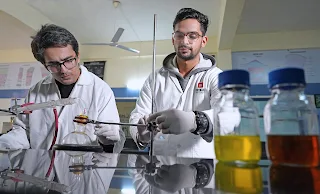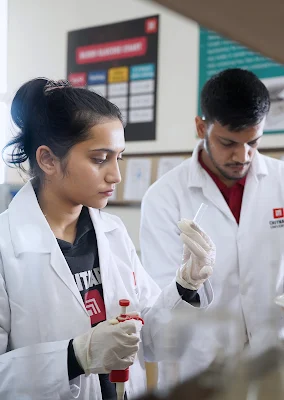PhD in Health Sciences
A PhD in Health Sciences is a doctoral degree program that focuses on the scientific study of health and wellness. It is an interdisciplinary field that draws from various fields such as biology, psychology, epidemiology, and public health. The program typically takes 4-7 years to complete and requires students to complete coursework, conduct original research, and write and defend a dissertation. Graduates of the program may work in academia, research, healthcare administration, or in the private sector.
PhD in Health Sciences Eligibility
To be eligible for a PhD in Health Sciences program, you generally need to have a master's degree in a related field, such as public health, biology, psychology, or epidemiology. Some programs may also consider applicants with a bachelor's degree and strong academic record.
Other common requirements for PhD in Health Sciences programs include:
Strong GPA (usually a minimum of 3.0)
GRE scores (or similar standardised test scores)
Recommendation letters
Statement of Purpose outlining research interests and career goals
Relevant work or research experience
Note that eligibility requirements can vary between universities and programs, so it is best to check with individual schools for specific requirements.
PhD in Health Sciences Scopes
A PhD in Health Sciences provides a broad range of career opportunities and scopes, both in academia and industry. Some of the areas where graduates can pursue careers include:
Academic Research: Graduates with a PhD in Health Sciences can work as professors, researchers, and instructors in universities, colleges, and research institutions.
Healthcare Administration: They can also work in healthcare administration, managing and leading healthcare organizations, such as hospitals and clinics.
Government Agencies: Graduates can work in government agencies, such as public health departments, to develop and implement health policies.
Pharmaceutical and Biotech Companies: They can also work in pharmaceutical and biotech companies, conducting research and development on new drugs and treatments.
Non-profit Organisations: Graduates can work for non-profit organisations, conducting research and advocating for improved health outcomes.
Consulting: They can also work as consultants, providing expert advice on healthcare policies and programs.
Overall, a PhD in Health Sciences opens up a wide range of opportunities to make a positive impact in healthcare and the well-being of communities.
Benefits PhD in Health Sciences
Here are some benefits of obtaining a PhD in Health Sciences:
Expertise: A PhD in Health Sciences provides advanced training and knowledge in the field, allowing individuals to develop expertise in their area of focus.
Career Advancement: With a PhD, graduates can pursue leadership roles in academia, research, healthcare administration, or industry.
Higher Earning Potential: A PhD often leads to higher salaries and better job prospects compared to those with a master's degree or lower.
Impactful Research: The program allows individuals to conduct original research and make contributions to the field of health sciences, which can have a positive impact on individuals, communities, and society.
Interdisciplinary Approach: The interdisciplinary nature of the program allows students to gain a comprehensive understanding of health and wellness, and how various factors, such as biology, psychology, and social determinants, impact health outcomes.
Networking Opportunities: Pursuing a PhD in Health Sciences provides opportunities to connect with other professionals and experts in the field, expanding one's professional network.
PhD in Health Sciences From Chitkara University
Chitkara University is a private university located in India that offers a PhD in Health Sciences program. The program aims to prepare students for careers in academia, research, and healthcare administration, by providing advanced training and knowledge in the field of health sciences.
Here is some general information about the PhD in Health Sciences program offered at Chitkara University:
Duration: The program typically takes 3-5 years to complete, depending on the pace of the student and the specific requirements of the program.
Coursework: The program includes coursework in subjects such as epidemiology, biostatistics, health systems, and health policies, as well as specialised courses in the student's area of focus.
Research: Students are required to conduct original research and write a dissertation, which must be defended in front of a committee.
Faculty: The program is taught by experienced faculty members with a background in health sciences, who bring a wealth of knowledge and expertise to the program.
It is important to note that the specific details and requirements of the PhD in Health Sciences program at Chitkara University may change over time, and it is best to check with the university for the most up-to-date information.













